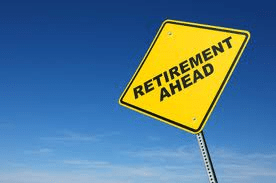
An unknown wise person once said, “The key to a happy retirement is to have enough money to live on, but not enough to worry about.”
Are you as terrified as I am of financial advisors who preach doom for retirees who do not have a sizeable nest egg or the means to replace 105% of their income? No one mentions that a “happy” retirement may be about much more than adequate financial resources, and that those who enjoy comfortable nest eggs, live in lavish homes, and play golf every day are not always the “happiest” retirees. The finance gurus emphasize higher earnings instead of lower spending and creative lifestyle. What if the formula for a successful retirement is not a one size fits all equation?
As cited in Retire For Less Than You Think by Fred Brock, a Harris Poll Survey concluded that “The happiness of people . . . was not necessarily linked to how much money they had made or had. Rather, happiness was more about feeling financially prepared for whatever retirement lifestyle they wanted.”Lifestyle is rarely the main topic in most writings about retirement. In his book How to Retire Happy, Wild, and Free, Ernie Zelinski relates some stories of unconventional retirees who found ways to survive and live the lives they always wanted to live. “Ian” left a lucrative job as a chemist at a large company to bike and camp around the globe, living on less than $10,000 a year. Robert, Barbara and their 16-year old twins live in a remote area of British Columbia in a log home. None of them have “regular” jobs.They survive on some small pensions (perhaps equal to social security) that Robert accumulated over his career. They make a little extra money pursuing things they love. These lifestyle choices may not be your cup of tea, but the point is that there are creative options for those who think outside the box.
Designing a retirement involves much more than accumulating wealth. There are questions to ask yourself about what kind of a lifestyle you aspire to when you are done with the rat race. Once these questions are answered, then it’s time to figure out how to implement the plan. Some questions to ask yourself about retirement:
- Do I want to live in a house, apartment, condo, boat, RV, retirement community, cabin in the woods, campground, cruise ship, hostel?
- Where do I want to live? Do I want to move to another place, or even out of the country where the cost of living may be cheaper?
- Who are the people I most want to live near? Could I live with someone?
- Should I split my time between places?
- Will I have to work? Should I work part time, start my own business, provide a service, turn a hobby into a business?
- What hobbies and activities do I want to pursue – where is the best place to find them?
- How will I stay healthy and fit?
- How will I keep my mind healthy and fit?
- What brings me peace and satisfaction? Do I need a church, mountains, the ocean?
- Do I need material possessions? Who do I need to impress?
- How much will it take to satisfy these desires? Do I have enough? Can I earn enough either before I retire or while I’m retired?
- What about further down the line? Did you parents need care in their final years? Will you need assisted living or memory care? Do you have someone to care for you? Do you have long-term care insurance to pay for this care?
Retirement planning starts with deciding which lifestyle, within your budget, suits you. Once you decide on the retirement lifestyle for you, there are endless creative options to get there.